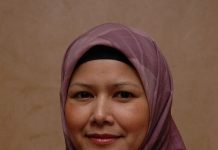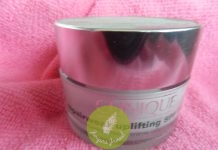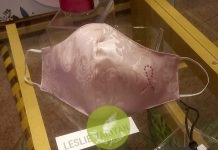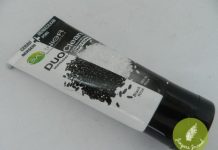Prof Dr Adeeba Kamarulzaman (extreme right) with Anna Chang, Brand Manager of MAC Cosmetics & Paul Slavin, MD of Estee Lauder Companies Malaysia
The Malaysian AIDS Foundation (MAF) raises money and manages funds to support the activities of the Malaysian AIDS Council (MAC) and its Partner Organisations. Every year, MAC donates 100% of their Viva Glam sale proceeds to MAF from the MAC AIDS Fund and the donation goes a long way in helping those living with and affected by HIV/AIDS. Before the screening of It’s Not Over, I had a chat with Prof Dr Adeeba Kamarulzaman the Chairman of Malaysian AIDS Foundation. I think this is one of my most meaningful interviews.
What are the primary objectives of MAF?
Increase awareness of HIV/AIDS
Prevent the spread of HIV
Eliminate discrimination. prejudice and stigma associated with HIV/AIDS
Promote and protect the right of those vulnerable to HIV/AIDS
Provide care and support to those with HIV/AIDS
What are MAF’s initiatives and projects this year?
Our Medical Assistance Scheme gives free direct medical assistance to those who can’t afford treatment. Although they receive free anti-viral treatments from the Government, the Scheme assists patients to buy more expensive treatments. This Scheme is supported by the Sime Darby Foundation.
Berjaya Foundation supports a programme for children affected by HIV from poor families to give them a monthly allowance to get to hospital. This was previously supported by Standard Chartered Bank.
L’Oreal Malaysia supports a similar scheme to assist older children aged 12 and above.
Over the years, what has the donation from MAC AIDS Fund been used for?
The donations have supported programmes for those in shelter homes who have no family or who have been abandoned by their family. There’s a 1 stop centre in Kota Bahru which receives funds from MAC AIDS Fund, this is for those living with HIV/AIDS to seek assistance but is not a home. The MAC AIDS Fund donation is also used for small research projects for marginalized communities. There’s a peer support programme for those newly diagnosed and in need of emotional support. They are generally too frightened to disclose to anyone and keep their condition a secret/ Their doctors are the only ones who know. It’s helpful for doctors and patients to have peer support like counseling.
Do you think the Malaysian public is more aware about AIDS now?
It’s hard to say. There’s general awareness now but no true understanding yet. People have to understand that everyone is at risk. There’s way too much moralizing but this is a health issue.
What’s being done to reach out to rural area like those in Sabah and Sarawak?
Malaysian AIDS Council will continue reaching out to rural areas. In Sabah, proceeds from MAC AIDS Fund are used for outreach and shelter programmes for sex workers. In Kelantan, the NGO Sahabat reaches out to rural areas. There’s a direct implementation of a syringe programme in Kuala Krai.
What’re the plans to further MAF/MAC’s work in 2015?
MAF oversees and manages the funds. For 2015, we have the MAC Strategic Plan which consolidates what they are currently doing. We hope there will be more prevention of HIV cases, less transmission between men and women and men to men. There are high rates of HIV/AIDS among sex workers. The Health Ministry gives a grant every year but funds are never enough.
What would you do to reach out to the young generation?
Looking at the statistics, we see many more new cases among the 15-29 age group. Many are born after the initial hype and fear of HIV. We have to think of modern ways to reach out to them – via social media, whatsapp, movies. Nowadays the young are glued to their computers/smartphones. In the 80s, it was about scaring people into taking action. Now it’s about making people aware of personal responsibilities. Anyone can be affected by HIV. We have to emphasise on prevention, safe sex, clean needles and getting tested for possible infection.
How do you get all of society to get involved in spreading the right message regarding HIV/AIDS?
We need to take a comprehensive approach, get schools, religious leaders, parents and all levels of society involved.
What’s your opinion about the documentary It’s Not Over sponsored by MAC AIDS Fund?
It’s very well titled. We have come a long way, people should not die from HIV.
What other measures can be taken to prevent the spread of HIV/AIDS?
We know how to prevent it but this is a complex problem which involves behavior. The legal environment prevents people from coming forward. It hampers MAF from carrying out effective programmes. To eradicate AIDS, we need to make sure that everyone infected receives treatment as early as possible to reduce the virus in the blood so that chances of transmitting to another person is lower. The late stage is when symptoms appear.






































































































